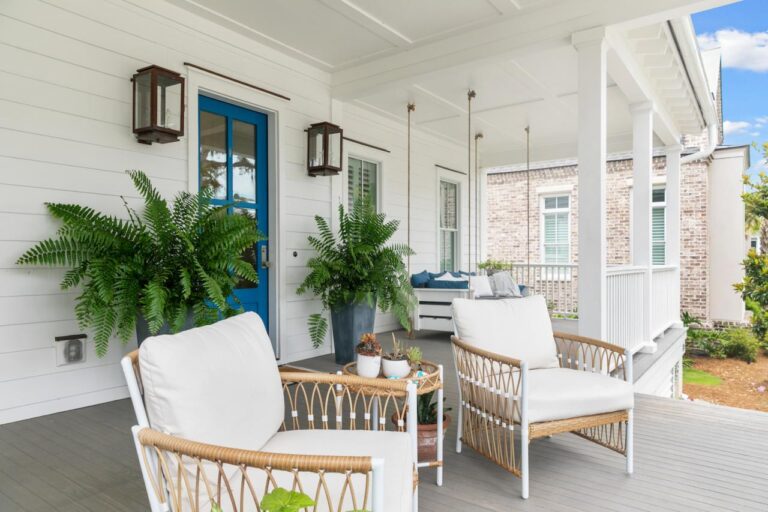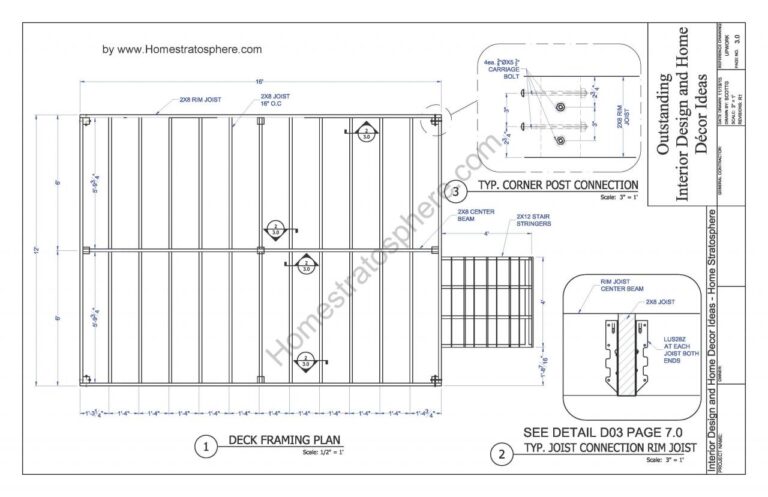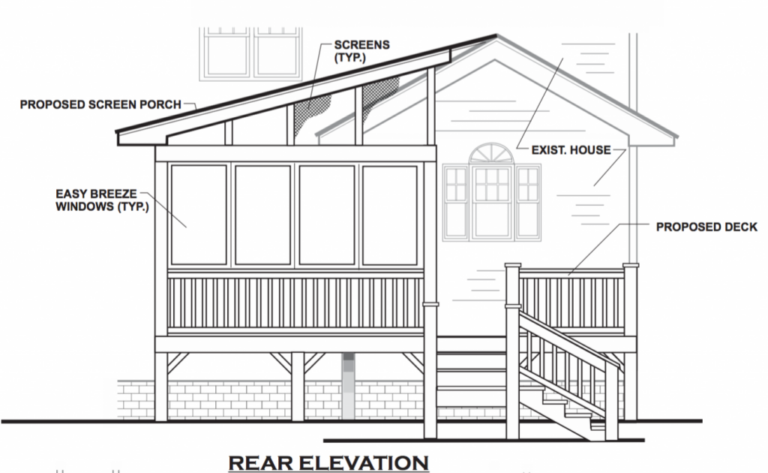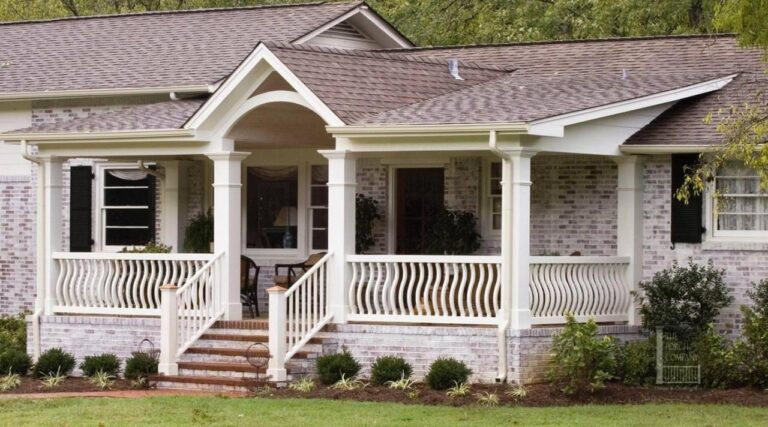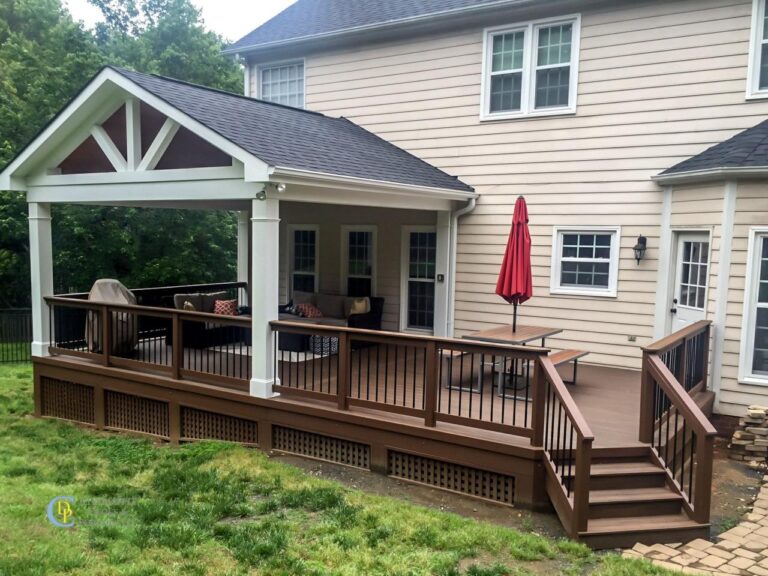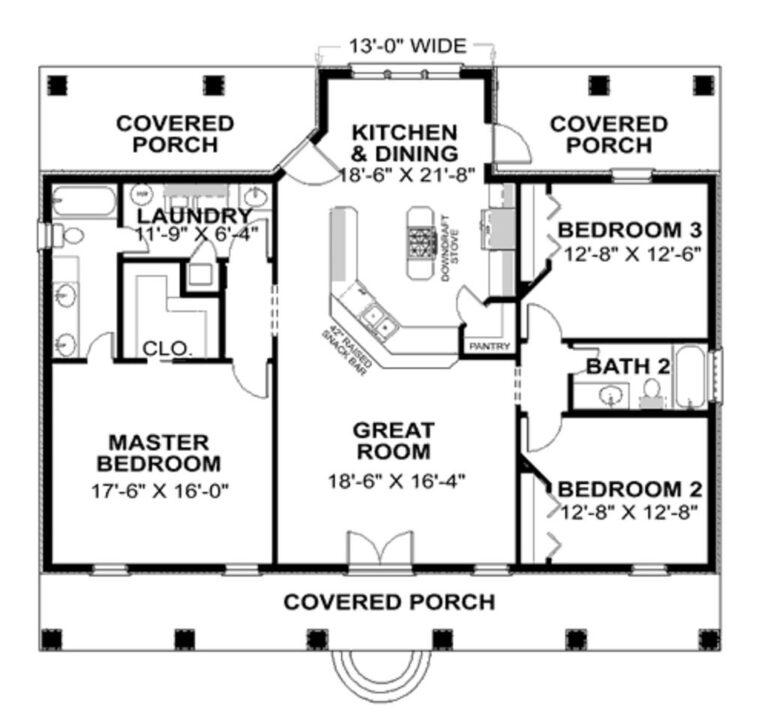Porch Plans With Roof
Porch plans with roofs encompass a multifaceted design process, blending aesthetics, structural integrity, and budgetary considerations. From selecting the ideal roof style – be it gable, hip, shed, or flat – to choosing appropriate materials like asphalt shingles, metal roofing, or tile, each decision contributes to the overall success of the project. This guide delves into the crucial aspects of porch roof construction, providing insights into design principles, material selection, integration with existing structures, and cost management, ultimately enabling you to create a stunning and functional outdoor space.
Understanding the interplay between roof dimensions, house size, and local climate is paramount. Careful planning ensures optimal natural light and ventilation, transforming your porch into a comfortable and inviting extension of your home. This guide will walk you through the entire process, from initial design concepts to the final touches, ensuring a seamless blend of style and functionality.
Porch Roof Types
Choosing the right porch roof style is crucial for both aesthetics and functionality. The style you select will significantly impact the overall look of your home and its ability to withstand the elements. Consider factors such as your home’s architectural style, local climate, and personal preferences when making your decision. This section will explore various porch roof types, their structural considerations, and suitable architectural styles.
Porch Roof Styles: A Comparison
Several porch roof styles offer distinct advantages and disadvantages. The optimal choice depends on your specific needs and preferences.
| Roof Style | Advantages | Disadvantages | Structural Considerations |
|---|---|---|---|
| Gable | Simple design, good ventilation, shed water effectively. | Can be less effective in heavy snow areas. | Requires rafters and ridge board; suitable for various materials like wood, metal, or asphalt shingles. |
| Hip | Strong, resist high winds, and sheds water well from all sides. | More complex construction, potentially more expensive. | Requires rafters angled to meet at a central point; often uses more lumber than a gable roof. |
| Flat | Modern aesthetics can be used for rooftop gardens or solar panels. | Requires proper drainage to prevent water pooling, vulnerable to snow accumulation. | Needs a robust structure with strong beams and proper waterproofing; often incorporates a slight slope for drainage. |
| Shed | Simple, inexpensive design, easy to construct. | Limited aesthetic appeal, less effective in heavy rainfall or snow. | Requires a single slope supported by rafters and a supporting wall; ideal for smaller porches. |
Porch Roof Design for Various Architectural Styles
The ideal porch roof design complements the architectural style of the house. Here are some examples:
- Victorian: Elaborate gable or hip roofs with decorative brackets, spindles, and intricate trim work often enhance the Victorian style. A steeply pitched gable roof with ornate detailing would be appropriate.
- Craftsman: Low-pitched gable or shed roofs with exposed rafters and simple detailing are common in Craftsman-style homes. A wide, overhanging shed roof creates a sense of shelter and emphasizes horizontal lines.
- Ranch: Simple gable or hip roofs with minimal ornamentation are suitable for Ranch style homes. A low-pitched gable roof with a modest overhang fits seamlessly with the style’s straightforward aesthetic.
Porch Roof Dimensions and Design
Careful consideration of dimensions is crucial for a functional and aesthetically pleasing porch roof. Several factors influence the final size and design.
Factors Influencing Porch Roof Dimensions
- House size: The porch roof should be proportionate to the overall size of the house.
- Available space: The dimensions are limited by the available space on the property.
- Local climate: Snow load and wind speed influence the structural design and materials.
- Desired functionality: The size should accommodate intended use, such as seating, dining, or storage.
Porch Roof Designs Maximizing Natural Light and Ventilation
Strategic design can enhance natural light and airflow under the porch roof.
- Using translucent roofing materials allows natural light to filter through while protecting from the elements. Imagine a porch with polycarbonate panels that allow ample light to penetrate.
- Incorporating strategically placed vents or louvers improves air circulation, reducing humidity and heat buildup. Picture a porch with decorative louvers integrated into the fascia board to provide gentle ventilation.
- Designing a high ceiling with sufficient clearance allows for better airflow. A vaulted ceiling under the porch roof can significantly improve air circulation.
Integrating Porch Roofs with Existing House Structures, Porch plans with roof.
Careful planning is essential when adding a porch roof to an existing structure. This involves matching the new roof’s style, materials, and pitch to the existing home’s architecture.
- Conduct a thorough structural assessment of the existing house to ensure the new porch roof can be safely supported.
- Obtain necessary permits and comply with building codes.
- Use appropriate fasteners and techniques to securely attach the new roof to the existing structure.
- Ensure proper flashing and sealing to prevent water damage.
Materials for Porch Roofs
The choice of roofing material significantly impacts the porch’s aesthetics, durability, and maintenance requirements. This section compares various options.
Comparison of Porch Roofing Materials
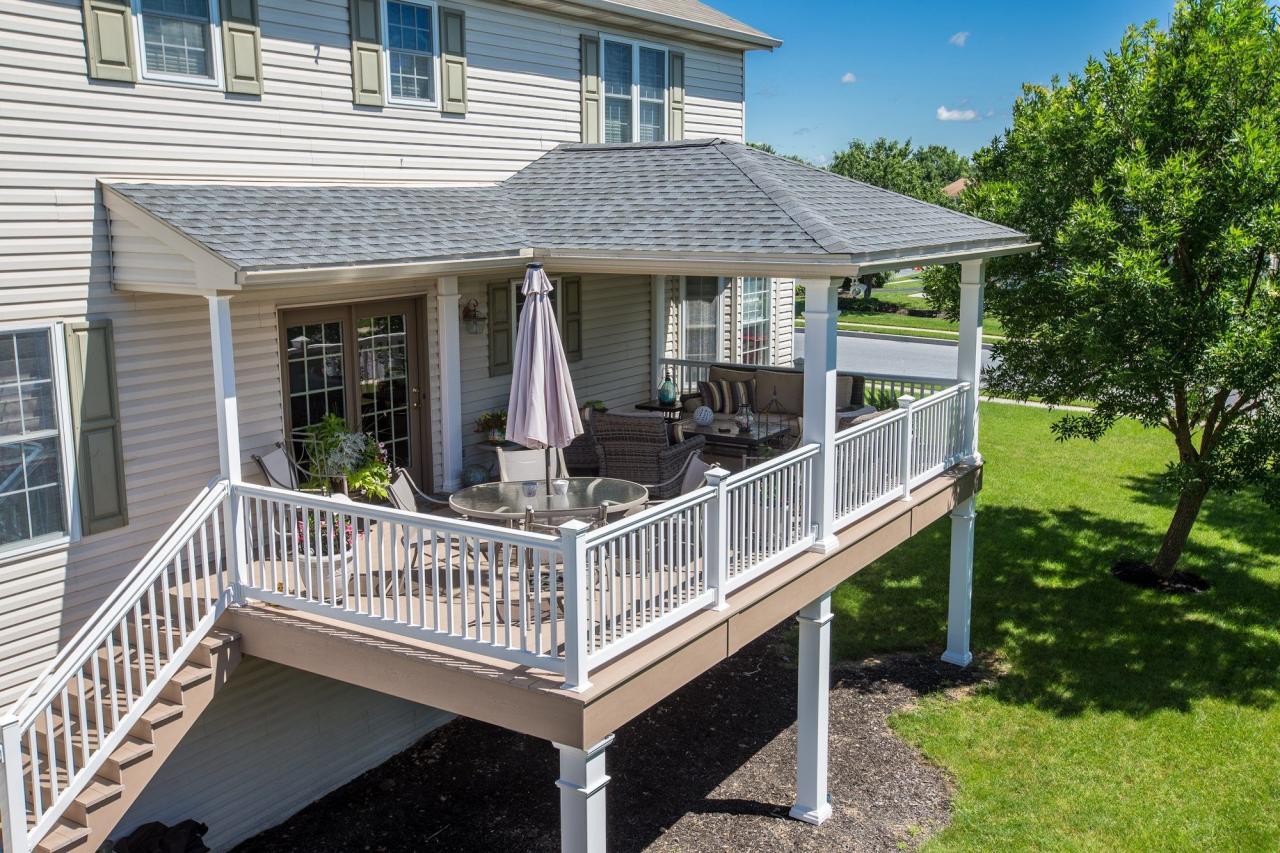
Source: pinimg.com
| Material | Cost | Durability | Aesthetics |
|---|---|---|---|
| Asphalt Shingles | Moderate | Moderate (15-30 years) | Versatile, available in various colors and styles. |
| Metal Roofing | High | High (50+ years) | Modern, sleek appearance; available in various colors and finishes. |
| Tile Roofing | High | High (50+ years) | Classic, elegant appearance; offers excellent weather protection. |
| Wood Shakes/Shingles | Moderate to High | Moderate (20-30 years, depending on treatment) | Rustic, natural look; requires regular maintenance. |
Porch Roof Maintenance Requirements
Regular maintenance is crucial to extend the lifespan of any porch roof.
- Asphalt Shingles: Regular inspections for damage and prompt repairs are necessary. Cleaning debris and moss is also important.
- Metal Roofing: Requires occasional cleaning to remove debris and prevent rust. Inspect for dents or damage and address them promptly.
- Tile Roofing: Regular inspection for cracks or broken tiles is crucial. Cleaning to remove moss and algae helps maintain appearance.
- Wood Shakes/Shingles: Requires regular treatment with water repellent to protect against rot and insect damage.
Porch Roof Design Using Specific Materials
A design example using metal roofing on a gable porch roof for a Craftsman-style home is presented below. Metal roofing’s durability and low maintenance requirements make it a suitable choice for this style. The dark grey metal complements the natural wood tones of the Craftsman style, creating a visually appealing contrast. The expected lifespan of this roof is at least 50 years with minimal maintenance.
Integrating Porch Roofs with Existing Structures
Adding a porch roof to an existing house requires careful planning and execution to ensure structural integrity and aesthetic harmony.
Steps in Attaching a New Porch Roof
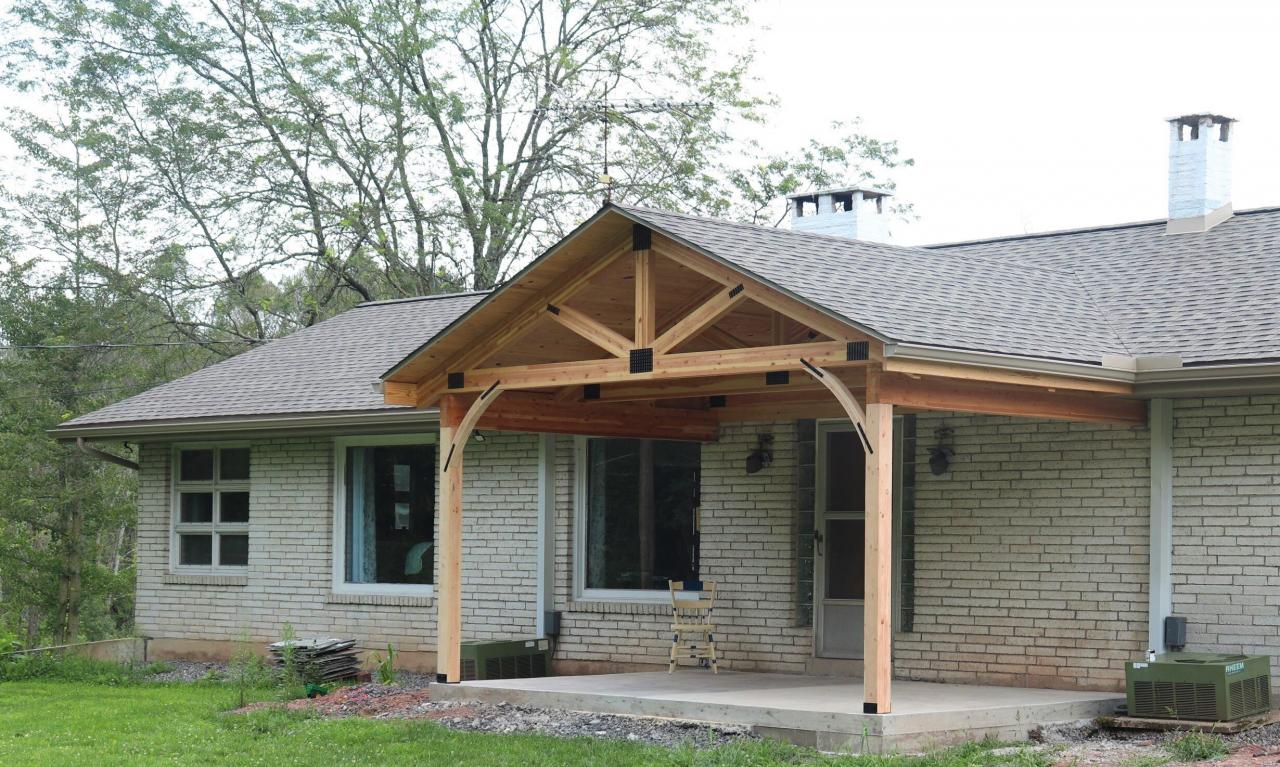
Source: Squarespace-cdn.com
- Assess the existing structure’s load-bearing capacity.
- Obtain necessary building permits.
- Construct a sturdy frame to support the new roof.
- Install the roofing material, ensuring proper flashing and sealing.
- Complete any necessary trim work and detailing.
Seamless Integration with Existing Architecture
Matching the new porch roof to the existing house’s style is essential for a cohesive look.
- Mimic the existing roof’s pitch, materials, and color whenever possible.
- Use similar trim details and architectural elements.
- Ensure the new roof’s size and proportions are harmonious with the existing house.
Successful Integration Examples
A Colonial-style home with a newly added gable porch roof using asphalt shingles that match the existing roof would create a seamless and harmonious look. Similarly, a modern home with a flat roof could incorporate a flat porch roof with metal roofing, maintaining a consistent aesthetic.
Porch Roof Aesthetics and Visual Appeal
The shape and details of a porch roof significantly impact its overall aesthetic. Careful consideration of these elements can enhance the home’s curb appeal.
Roofline Shapes and Overhangs
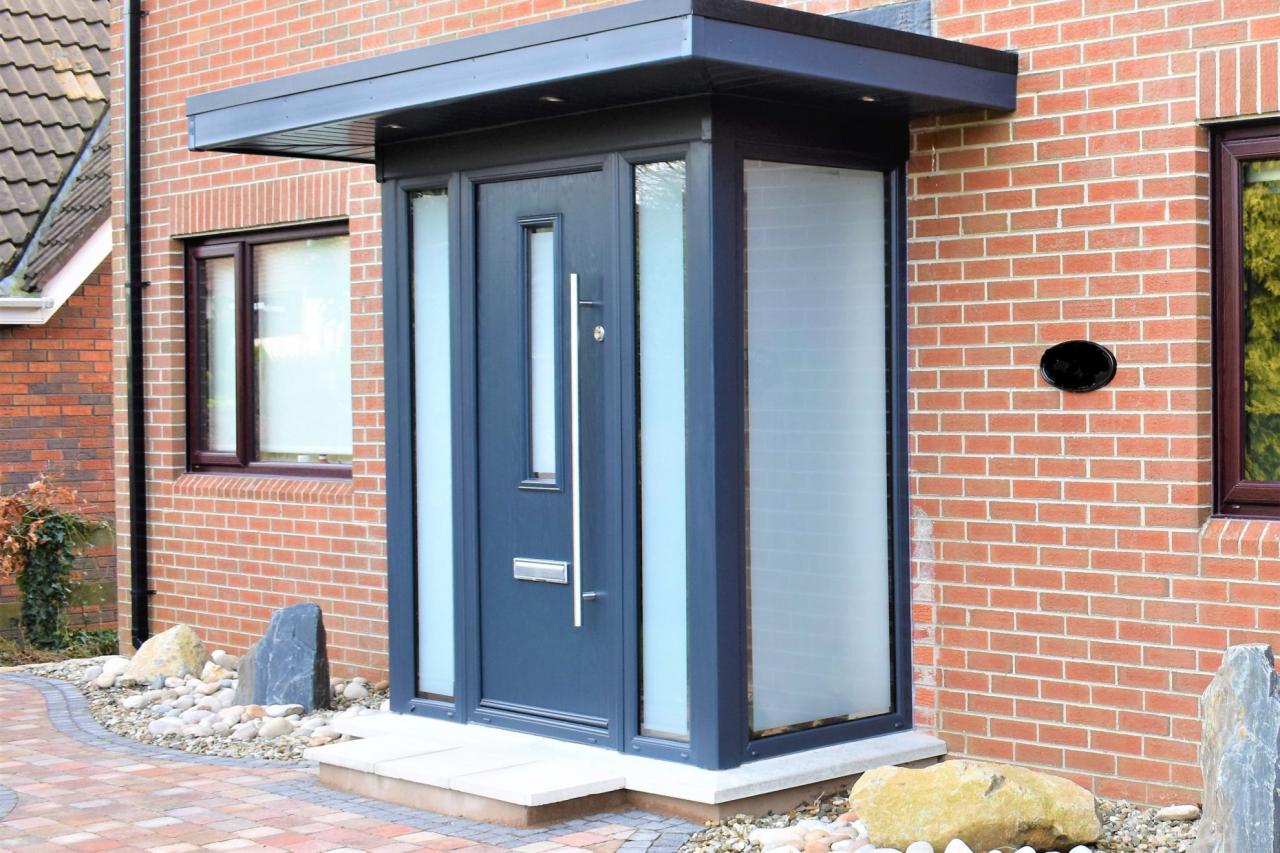
Source: co.uk
The shape of the roofline, whether gable, hip, or shed, dramatically affects the visual impact. The overhang creates shade and shelter, adding to the porch’s functionality and aesthetic appeal. A deeper overhang provides more shade but may require stronger structural support. A shallower overhang offers less shade but might be more suitable for smaller porches or areas with limited space.
Incorporating Decorative Elements
Adding decorative elements can elevate the porch’s aesthetic.
- Brackets add visual interest and support the roofline.
- Trim details such as fascia boards and soffits enhance the overall look.
- Spindles or balusters add a touch of elegance.
Porch Roof Design Complementing a Specific Architectural Style
Imagine a Craftsman-style home with a low-pitched gable porch roof. The roof is clad in dark brown wood shakes, complementing the home’s natural wood siding. Simple brackets and exposed rafters add to the Craftsman aesthetic. The color scheme uses earthy tones, creating a warm and inviting atmosphere. The overall design is simple yet elegant, enhancing the home’s charm.
Porch Roof Lighting and Electrical Considerations
Proper lighting enhances both the functionality and ambiance of a porch. Careful planning is crucial for safety and code compliance.
Planning and Installing Porch Roof Lighting
- Determine the desired lighting levels and styles.
- Choose fixtures appropriate for outdoor use and weather conditions.
- Plan the electrical wiring, ensuring proper grounding and protection.
- Comply with all local electrical codes and safety regulations.
Lighting Styles for Porch Roofs
- Recessed lighting provides even illumination.
- Pendant lights create a focal point.
- Sconces offer ambient lighting and add visual interest.
Electrical Wiring Requirements
Outdoor wiring must be specifically designed for outdoor use and protected from the elements. Waterproof junctions, appropriate conduits, and ground fault circuit interrupters (GFCIs) are essential for safety.
Cost and Budget Considerations for Porch Roofs: Porch Plans With Roof
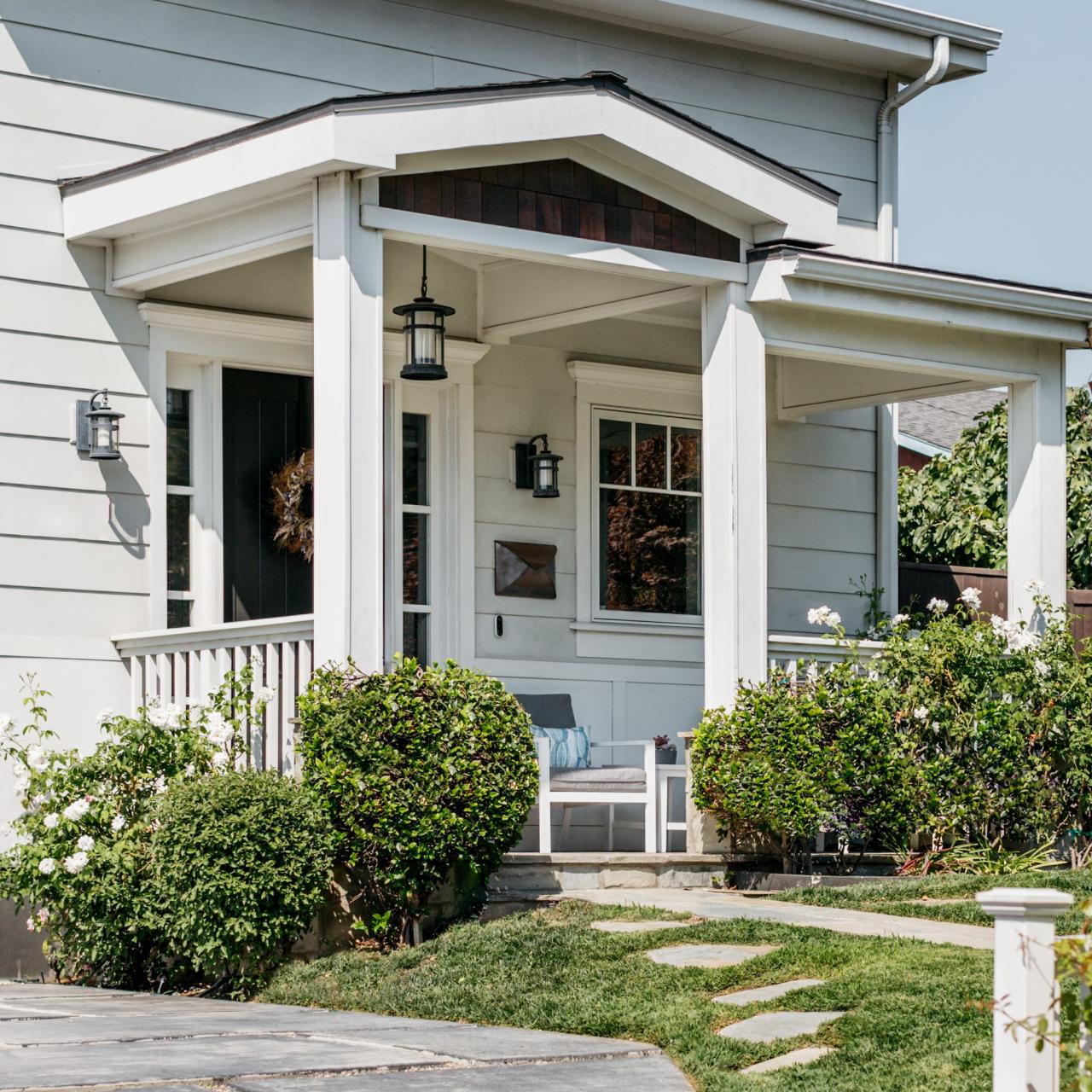
Source: foyr.com
Building a porch roof involves several costs that need careful budgeting.
Breakdown of Typical Costs
Costs vary depending on the size, complexity, and materials used. Factors include materials (lumber, roofing, fasteners, etc.), labor costs (construction crew, electrician), permits, and any necessary structural modifications to the existing house. A rough estimate might range from a few thousand dollars for a simple shed roof to tens of thousands for a complex multi-level design.
Cost Minimization Strategies
- Choose cost-effective materials without compromising quality.
- Consider DIY options for some aspects of the project.
- Shop around for competitive pricing on materials and labor.
Sample Porch Roof Budget
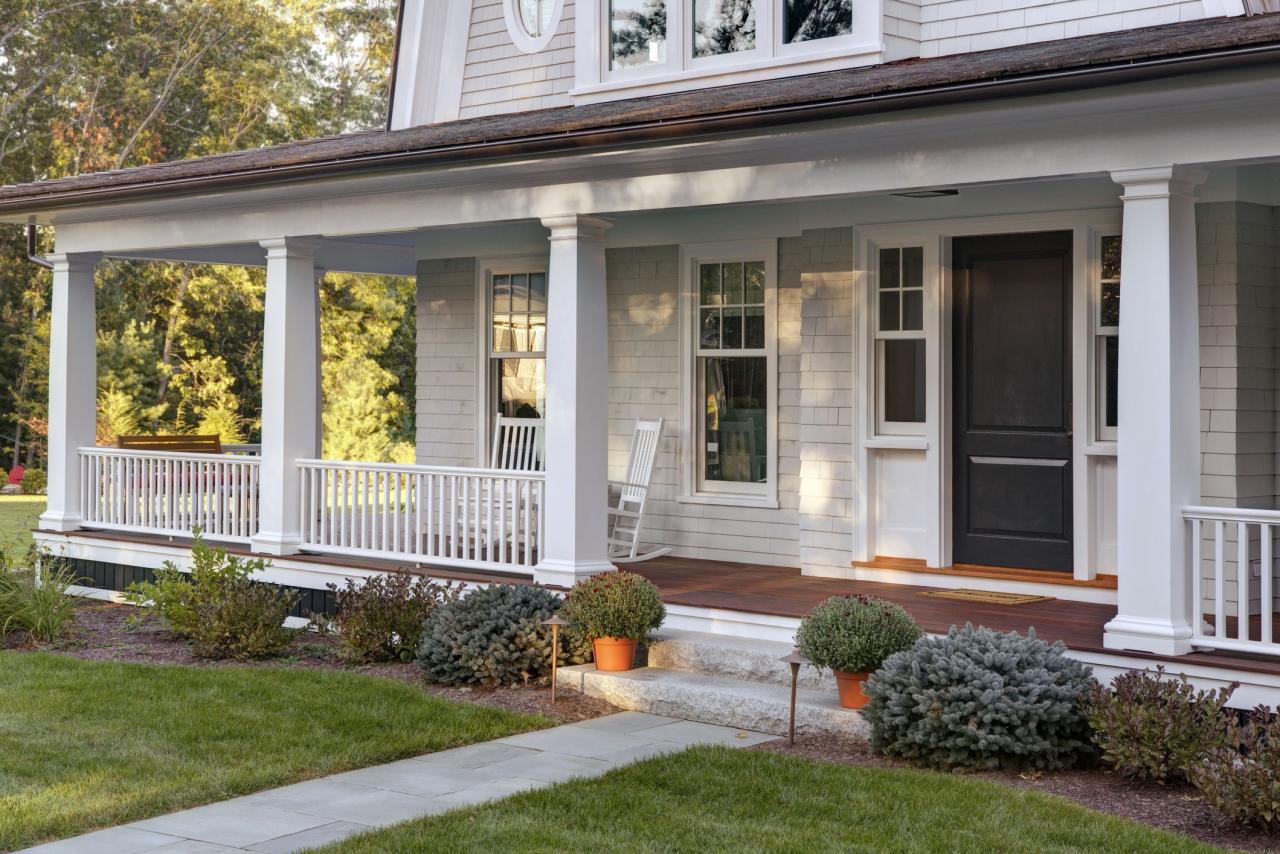
Source: thespruce.com
A sample budget for a 10ft x 12ft gable porch roof with asphalt shingles might include:
- Materials: $2,000
- Labor: $3,000
- Permits: $500
- Total: $5,500 (This is a very rough estimate and will vary greatly based on location and specific project details.)
General Inquiries
What are the permit requirements for building a porch roof?
Permit requirements vary by location. Check with your local building department to determine necessary permits and inspections.
How long does it typically take to build a porch roof?
The construction time depends on the complexity of the design and weather conditions. Expect a timeframe ranging from a few days to several weeks.
What is the average lifespan of different porch roofing materials?
Asphalt shingles typically last 15-30 years, metal roofing can last 50+ years, and tile roofs can last 50-100 years. Lifespan is affected by climate and maintenance.
Can I build a porch roof myself, or should I hire a contractor?
While DIY is possible for simpler designs, complex projects often require professional expertise to ensure structural integrity and code compliance. Assess your skills and the project’s complexity before deciding.
How can I ensure my porch roof is properly waterproofed?
Proper waterproofing involves using high-quality roofing materials, ensuring proper flashing around chimneys and walls, and applying a waterproof sealant where necessary. Consult a professional for best practices.
